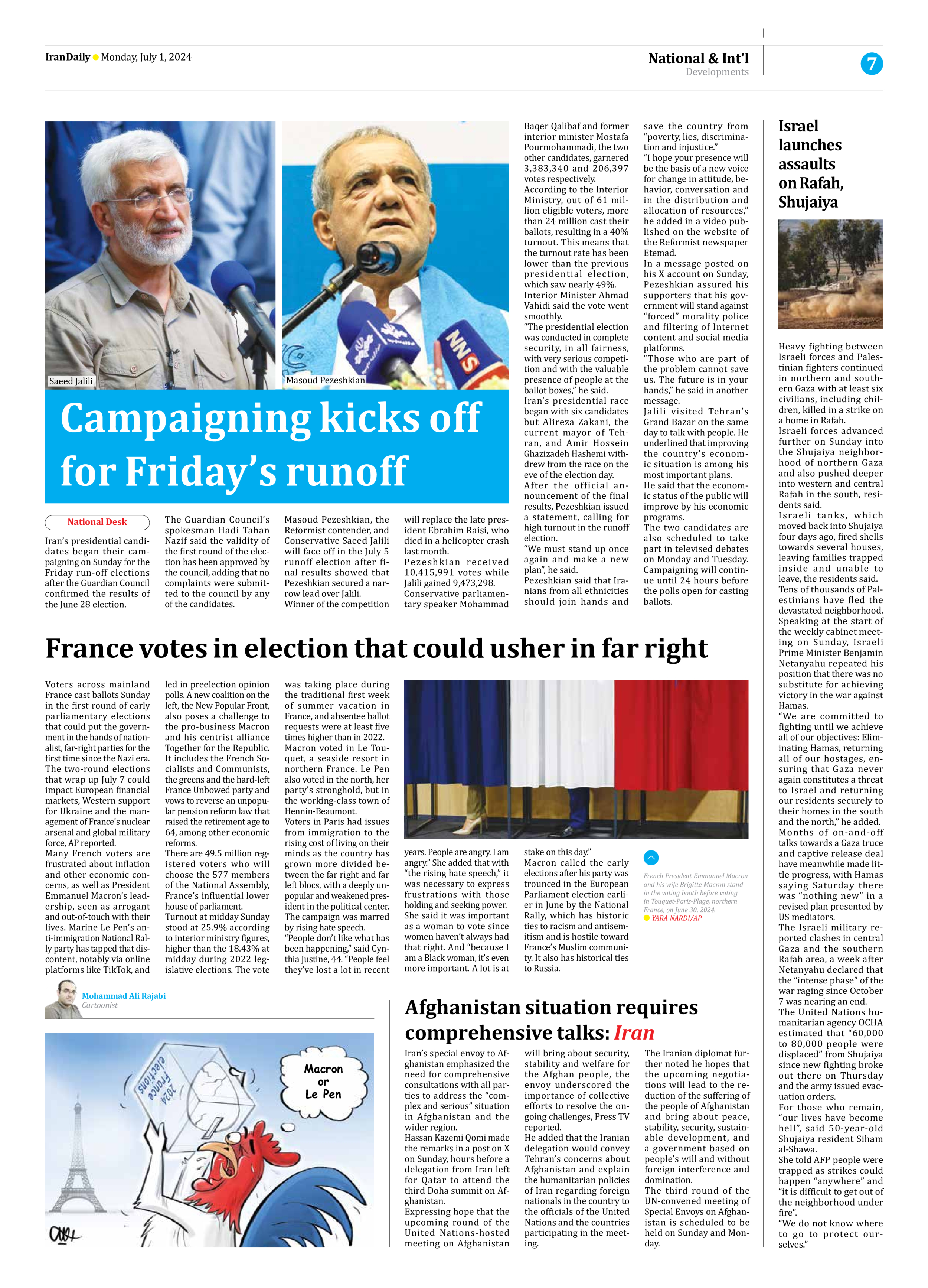
Copy in clipboard...
France votes in election that could usher in far right
The two-round elections that wrap up July 7 could impact European financial markets, Western support for Ukraine and the management of France’s nuclear arsenal and global military force, AP reported.
Many French voters are frustrated about inflation and other economic concerns, as well as President Emmanuel Macron’s leadership, seen as arrogant and out-of-touch with their lives. Marine Le Pen’s anti-immigration National Rally party has tapped that discontent, notably via online platforms like TikTok, and led in preelection opinion polls. A new coalition on the left, the New Popular Front, also poses a challenge to the pro-business Macron and his centrist alliance Together for the Republic. It includes the French Socialists and Communists, the greens and the hard-left France Unbowed party and vows to reverse an unpopular pension reform law that raised the retirement age to 64, among other economic reforms.
There are 49.5 million registered voters who will choose the 577 members of the National Assembly, France’s influential lower house of parliament.
Turnout at midday Sunday stood at 25.9% according to interior ministry figures, higher than the 18.43% at midday during 2022 legislative elections. The vote was taking place during the traditional first week of summer vacation in France, and absentee ballot requests were at least five times higher than in 2022.
Macron voted in Le Touquet, a seaside resort in northern France. Le Pen also voted in the north, her party’s stronghold, but in the working-class town of Hennin-Beaumont.
Voters in Paris had issues from immigration to the rising cost of living on their minds as the country has grown more divided between the far right and far left blocs, with a deeply unpopular and weakened president in the political center. The campaign was marred by rising hate speech.
“People don’t like what has been happening,” said Cynthia Justine, 44. “People feel they’ve lost a lot in recent years. People are angry. I am angry.” She added that with “the rising hate speech,” it was necessary to express frustrations with those holding and seeking power.
She said it was important as a woman to vote since women haven’t always had that right. And “because I am a Black woman, it’s even more important. A lot is at stake on this day.”
Macron called the early elections after his party was trounced in the European Parliament election earlier in June by the National Rally, which has historic ties to racism and antisemitism and is hostile toward France’s Muslim community. It also has historical ties to Russia.







